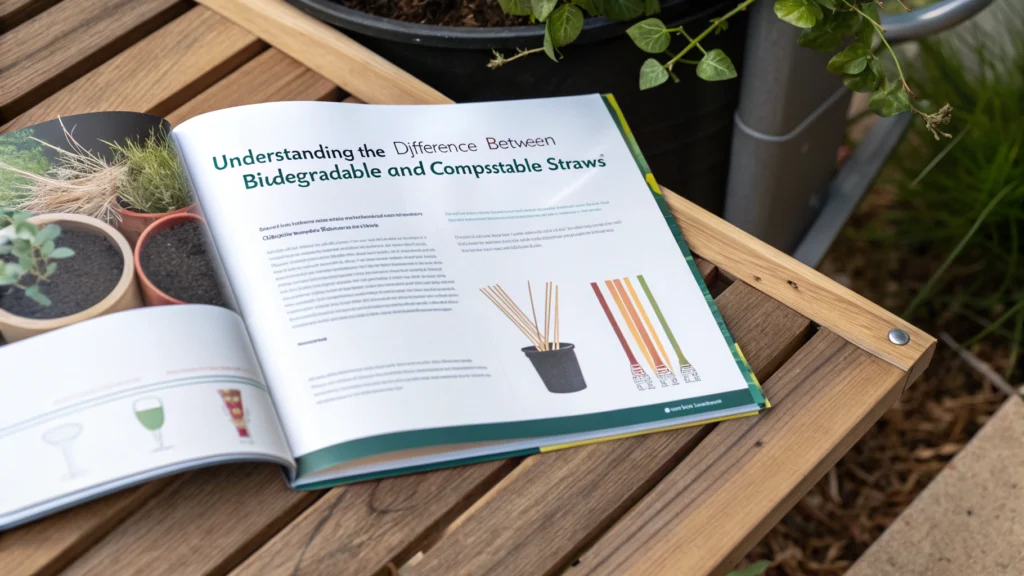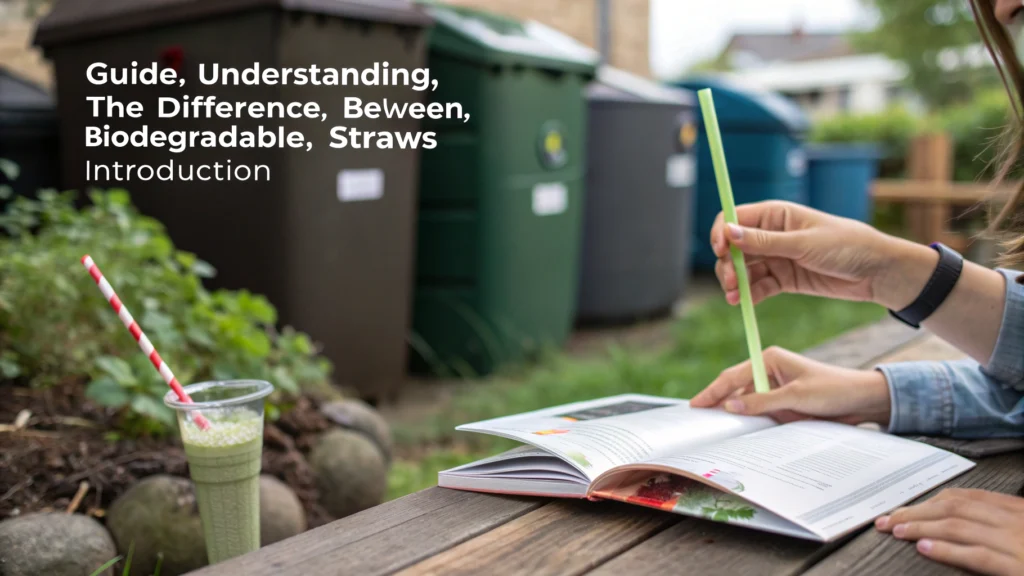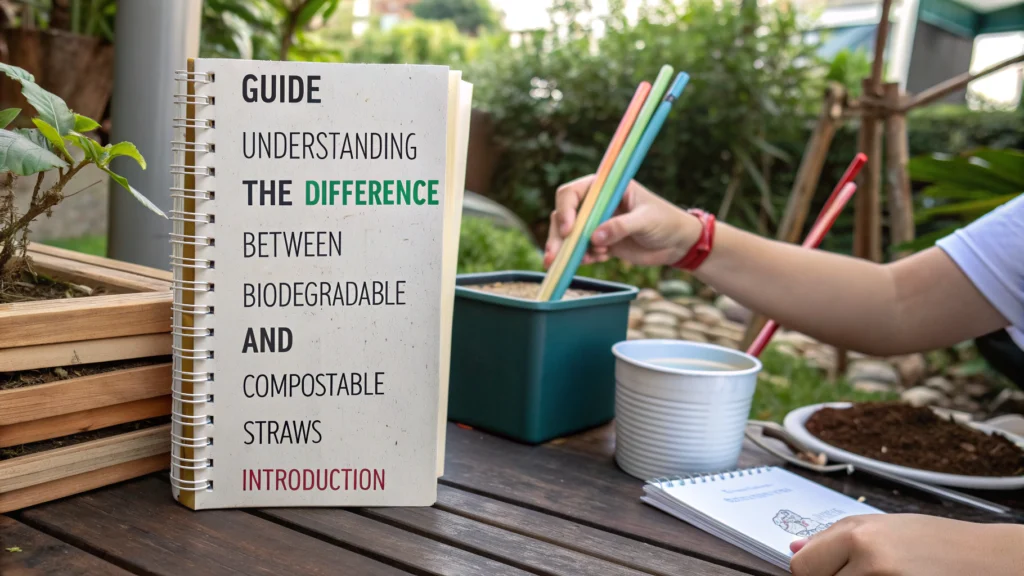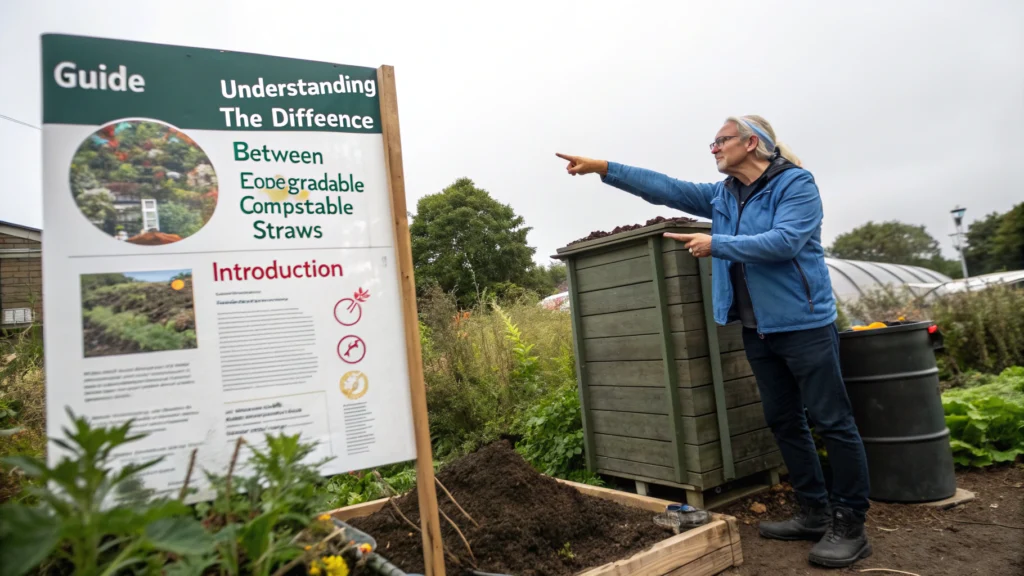Guide: Understanding the Difference Between Biodegradable and Compostable Straws

Indledning
In an era of heightened environmental awareness, the quest for sustainable alternatives to plastic straws has led to a surge in eco-friendly options. However, the terms “biodegradable” and “compostable” are often conflated, despite their distinct implications for waste management and environmental impact. This guide aims to demystify these concepts, providing a nuanced understanding of biodegradable and compostable straws to empower businesses and consumers in making informed, sustainable choices.
Biodegradable Straws: Nature’s Time-Released Solution
Biodegradable straws represent a step towards reducing plastic pollution, but their efficacy is not without caveats. These straws, typically made from plant starches or bioplastics, are designed to break down naturally over time when exposed to environmental elements.

Compostable Straws: Engineering Nature’s Recycling Process
Compostable straws represent the vanguard of sustainable straw solutions, engineered to break down completely in industrial composting facilities. Made from renewable resources like PLA, sugarcane fiber, or bamboo, these straws embody a cradle-to-cradle approach to product design.

Decision Framework: Navigating the Eco-Friendly Straw Landscape
When choosing between biodegradable and compostable straws, consider:
Conclusion: Charting a Course for Sustainable Sipping
As we conclude our discussion on sustainable alternatives to traditional plastic straws, let’s reflect on the significant impact these small changes can have on our planet.
The transition from traditional plastic straws to more eco-friendly alternatives marks a critical juncture in the journey towards sustainability. While biodegradable straws offer a step in the right direction, their unpredictable decomposition rates and potential for microplastic formation present ongoing challenges. Compostable straws, with their engineered breakdown process and nutrient-rich end product, offer a more reliable and holistic solution to the plastic waste dilemma.

For those ready to take the next step in their sustainability journey, we invite you to explore our range of compostable straws. Contact Max Jiang at max@naturebioeco.com or +86 13524105790 to learn how NatureBioEco can help your business align with the cutting edge of environmental responsibility.
In the words of renowned environmentalist Dr. Jane Goodall, “What you do makes a difference, and you have to decide what kind of difference you want to make.” Choose compostable straws, and make a difference that resonates from the café counter to the compost pile, and beyond.
Frequently Asked Questions about Eco-Friendly Straws
- What are the benefits of using compostable straws?
- Compostable straws decompose into nutrient-rich material, helping to enrich soil and reduce plastic pollution.
- Are compostable straws really better for the environment?
- Yes, they break down completely in compost conditions, leaving no microplastics behind.
- How long do compostable straws take to decompose?
- They typically decompose within 90 to 180 days in industrial composting facilities.
- Can I compost compostable straws at home?
- Yes, but they decompose faster in the controlled conditions of industrial composting facilities.
- What are compostable straws made from?
- They are usually made from plant-based materials like corn starch or sugarcane.
- Do compostable straws affect the taste of beverages?
- No, they do not alter the taste or quality of the beverage they are used with.
- Where can I buy compostable straws?
- You can purchase them from eco-friendly product suppliers like NatureBioEco.
- Are there any government incentives for using compostable straws?
- Some regions offer incentives for businesses that adopt sustainable practices, including using compostable products.
Konklusion
Embracing compostable straws is more than a trend; it’s a responsible choice for businesses and consumers aiming to contribute positively to the environment. By choosing these eco-friendly alternatives, you participate in a global movement towards sustainability that benefits both our planet and future generations.
Take Action
Ready to make a sustainable change? Contact NatureBioEco today to integrate eco-friendly solutions into your business and lead the way in environmental responsibility.







